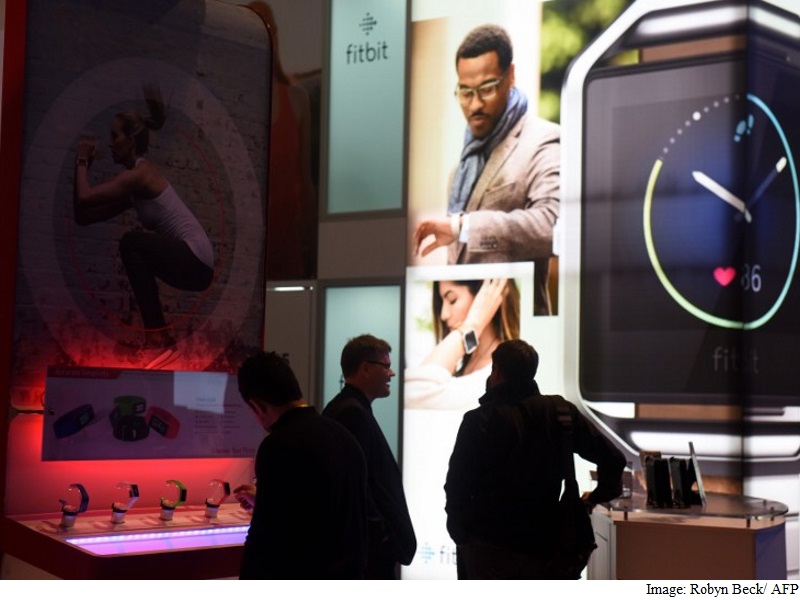
It’s not last year’s fitness tracker anymore.
New technology on display at the Consumer Electronics Show gets deeper into your skin, heart and muscle to help boost performance and health for competitive athletes as well as weekend warriors.
From German-based startup HS Innovation comes a connected ski system with activity trackers on boots that communicate with goggles to help skiers develop correct positioning for a better downhill run.
“We have a big data algorithm which analyzes your run to see how you can do better,” said HS Innovation founder Hermann Schindler, who says the system is launching this year in Europe.
“This is something that can help all skiers, including professionals.”
If baseball is your sport, a new motion tracking system from California-based Zepp Labs works inside the bat, which can help little leaguers and Major Leaguers improve their hitting without a cumbersome add-on.
“We are working with six Major League Baseball teams,” said Zepp marketing manager Bill Lucarelli. “These teams do a lot with data analysis, but they don’t have a lot about the batter unless they take it to a controlled environment. With this we can just put it in the bat.”
Zepp’s coaching app and tracker also is used in golf and tennis, while British-based Cambridge Consultants offers a similar system for baseball.
Getting muscle quality
For pure fitness, the tech show is awash in new products that analyze muscle, fat and other measures.
A new connected scale from San Francisco-based startup Qardio is among several products that measure not just weight, but analyze body composition in terms of muscle, fat and bone using electrical impulses from the feet.
But it doesn’t stop there: Qardio also offers a coaching app “which uses algorithms to help you achieve your fitness goals,” said marketing manager Alison Luby.
Creators of new fitness technology say it’s important to get a detailed picture that goes beyond the traditional measure of body mass index (BMI), a simple calculation based on height and weight.
“BMI can be tricky because muscle weighs more than fat,” said Luby. “So people who have a lot of muscle may have a higher weight” than might otherwise be expected.
For those looking for even more detail, a smartphone-connected device from startup Skulpt can provide an analysis of individual muscles to help guide workouts.
The device, the size of a small handset, is applied to the muscle and grades “muscle quality” as well as fat composition by using a system known as electrical impedance myography.
“This allows people to track their progress over time and develop personalized workouts,” said George Dorsey, a personal trainer who works with Skulpt and who was demonstrating the device at a CES event.
“It allows you to pinpoint fat accumulations. You could create an exercise program to work on the areas you need,” Dorsey said.
The system is based on technology to monitor patients with Lou Gehrig’s disease or Amyotrophic lateral sclerosis, a degenerative muscle disorder, and refined by Seward Rutkove, a neurologist at Harvard Medical School.
Canada-based Hexoskin, a maker of smart shirts with embedded sensors, adds respiration to the mix along with heart rate and other data.
The shirt “is more accurate” for much of the data, says Hexoskin chief executive Pierre-Alexandre Fournier.
As for respiration measurements, Fournier says that “no one else has it” in fitness gear, and that “it’s a complement to heart rate data.”
The $399 (roughly Rs. 26,700) shirt is on sale in Canada and the United States. Hexoskin also makes wearables for Nasa, the military and industrial firms.
Smart eyewear is another key segment – helping provide real-time data to cyclists, runners and others.
Massachusetts-based startup Kopin used CES to introduce its Solos eyewear for cyclists which monitors performance metrics such as heart rate, speed, power, pace, cadence, distance, duration and other data.
Stepping up to plate
In addition to the startups, many of the big names in sports and fitness are stepping up to the plate.
Chip giant Intel announced at CES a strategic partnership with sports gear maker New Balance to develop wearable innovations that connect athletes with technology to improve their performance.
Under Armour meanwhile unveiled a suite of connected fitness devices including its UA Band designed to be worn all day to track daily activity, workouts and sleep. It also includes a compact heartrate monitor that can measure workout intensity plus a connected scale that enables weight and body fat percentage readings.
“For 20 years, Under Armour has changed the way athletes dress and now we will change the way athletes live,” said Kevin Plank, founder and CEO, in a statement.
“We are taking connected Fitness to another level… athletes will be empowered with the information to make better decisions and ultimately enrich their lives in a way that’s never been done before.”
Fitbit on Tuesday unveiled its “smart fitness watch,” aiming to get into the growing smartwatch segment with upgraded fitness tracking features.
The company, which leads the wearable tech market with its wrist-worn trackers but is being challenged by the rise of smartwatches from Apple and others, said its $199 (roughly Rs. 13,350) Fitbit Blaze watch was available for pre-order and would be in retail stores globally in the coming months.
[“source-gadgets.ndtv”]





